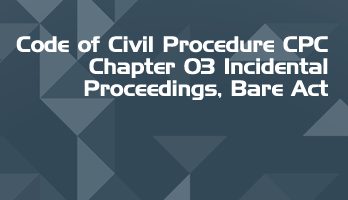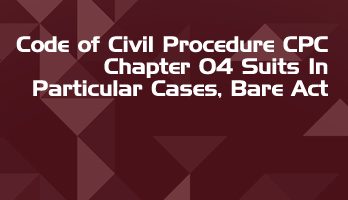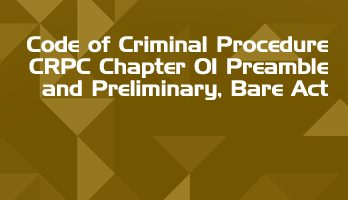A 'Bare act' is the actual legislation passed by the Parliament of India. Generally, an act sets out the high level legal and policy principles applicable to the subject matter of the law.
Most acts are accompanied by 'subsidiary legislation' such as rules, regulations, notifications and orders; which address the actual implementation detail of the act.
Free Full Course Available on LawMint's YouTube Channel
How to Land Your Dream LLB Internship in a Top Law Firm
- Part 1 - Introduction
- Part 2 - Internship Planning
- Part 3 - Internship Research
- Part 4 - Building Your Profile
- Part 5 - The Email
- Part 6 - The Resume
- Part 7 - The Cover Letter
- Part 8 - The Interview
- Part 9 - Self Development
Practical and comprehensive course, with real examples and step-by-step analysis of the complete internship application process. Check out LawMint's YouTube channel now!
The Indian Evidence Act, 1872
Chapter 9 – Of Witnesses
Section 118 – Who may testify
All persons shall be competent to testify unless the Court considers that they are prevented from understanding the question put to them, or from giving rational answers to those questions, by tender years, extreme old age, disease, whether of body or mind, or any other cause of the same kind.
Explanations A lunatic is not incompetent to testify, unless he is prevented by his lunacy from understanding the questions put to him and giving rational answers to them.
Section 119 – Witness unable to communicate verbally.
A witness who is unable to speak may give his evidence in any other manner in which he can make it intelligible, as by writing or by signs; but such writing must be written and the signs made in open Court, evidence so given shall be deemed to be oral evidence; Provided that if the witness is unable to communicate verbally, the Court shall take the assistance of an interpreter or a special educator in recording the statement, and such statement shall be video graphed.
1 Criminal Law (Amendment) Act, 2013
Section 120 – Parties to civil suit, and their wives or husbands. Husband or wife of person under criminal trial
In all civil proceedings the parties to the suit, and the husband or wife of any party to the suit, shall be competent witnesses. In criminal proceedings against any person, the husband or wife of such person, respectively, shall be a competent witness.
Section 121 – Judges and Magistrates
No Judge or Magistrate shall, except upon the special order of some Court to which he is subordinate, be compelled to answer any question as to his own conduct in Court as such Judge or Magistrate, or as to anything which came to his knowledge in Court as such Judge or Magistrate; but he may be examined as to other matters which occurred in his presence whilst he was so acting.
Illustrations
- A, on his trial before the Court of Sessions, says that a deposition was improperly taken by B, the Magistrate. B cannot be compelled to answer questions as to this, except upon the special order of a superior Court.
- A is accused before the Court of Sessions of having given false evidence before B, a Magistrate. B cannot be asked what A said, except upon the special order of the superior Court.
- A is accused before the Court of Sessions of attempting to murder a police officer whilst on his trial before B, a Session Judge. B may be examined as to what occurred.
Section 122 – Communications during marriage
No person who is or has been married, shall be compelled to disclose any communication made to him during marriage by any person to whom he is or has been married; nor shall he be permitted to disclose any such communication, unless the person who made it, or his representative in interest, consents, except in suits between married persons, or proceedings in which one married person is prosecuted for any crime committed against the other.
Section 123 – Evidence as to affairs of State
No one shall be permitted to give any evidence derived from unpublished official records relating to any affairs of State, except with the permission of the officer at the head of the department concerned, who shall give or withhold such permission as he thinks fit.
Section 124 – Official communications
No public officer shall be compelled to disclose communications made to him in official confidence, when he considers that the public interest would suffer by the disclosure.
Section 125 – Information as to commission of offences
No Magistrate or police officer shall be compelled to say whence he got any information as to the commission of any offence, and no Revenue officer shall be compelled to say whence he got any information as to the commission of any offence against the public revenue.
ExplanationsRevenue officer in this section means an officer employed in or about the business of any branch of the public revenue.
Section 126 – Professional communications
No barrister, attorney, pleader or vakil shall at any time be permitted, unless with his client’s express consent, to disclose any communication made to him in the course and for the purpose of his employment as such barrister, pleader, attorney or vakil, by or on behalf of his client, or to state the contents or condition of any document with which he has become acquainted in the course and for the purpose of his professional employment, or to disclose any advice given by him to his client in the course and for the purpose of such employment;
Provided that nothing in this section shall protect from disclosure –
- Any such communication made in furtherance of any illegal purpose;
- Any fact observed by any barrister, pleader, attorney or vakil, in the course of his employment as such, showing that any crime or fraud has been committed since the commencement of his employment. It is immaterial whether the attention of such barrister, pleader, attorney or vakil was or was not directed to such fact by or no behalf of his client.
Explanations The obligation staled in this section continues after the employment has ceased.
Illustrations
- A, a client, says to B, an attorney – I have committed forgery and I wish you to defend me. As the defence of a man known to be guilty is not a criminal purpose, this communication is protected from disclosure.
- A, a client, says to B, an attorney – I wish to obtain possession of property by the use of forged deed on which I request you to sue. This communication, being made in furtherance of a criminal purpose, is not protected from disclosure.
- A, being charged with embezzlement, retains B, an attorney, to defend him. In the course of the proceedings, B observes that an entry has been made in A’s account book, charging A with the sum said to have been embezzled, which entry was not in the book at the commencement of his employment. This being a fact observed by B in the course of his employment, showing that a fraud has been committed since the commencement of the proceedings, it is not protected disclosure.
Section 127 – Section 126 to apply to interpreters, etc
The provision of section 126 shall apply to interpreters, and the clerks or servants of barristers, pleaders, attorneys, and vakils.
Section 128 – Privilege not waived by volunteering evidence
If any party to a suit gives evidence therein at his own instance or otherwise, he shall not be deemed to have consented thereby to such disclosure as is mentioned in section 126; and if any party to a suit or proceeding calls any such barrister, pleader, attorney or vakil as a witness, he shall be deemed to have consented to such disclosure only if he questions such barrister, attorney or vakil on matters which, but for such question, he would not be at liberty to disclose.
Section 129 – Confidential communications with legal advisers
No one shall be compelled to disclose to the Court any confidential communication which has taken place between him and his legal professional adviser, unless he offers himself as a witness, in which case he may be compelled to disclose any such communications as may appear to the Court necessary to be known in order to explain any evidence which he has given, but no others.
Section 130 – Production of title – deeds of witness not a party
No witness who is not a party to a suit shall be compelled to produce his title – deeds to any property, or any document by virtue of which he holds a property as pledgee or mortgagee or any document the production of which might tend to criminate him, unless he has agreed in writing to produce them with the person seeking the production of such deeds or some person through whom he claims.
Section 131 – Production of documents or electronic records which another person, having possession, could refuse to produce
No one shall be compelled to produce documents in his possession or electronic records under his control, which any other person would be entitled to refuse to produce if they were in his possession or control, unless such last – mentioned person consents to their production.
Section 132 – Witness not excused from answering on ground that answer will criminate
A witness shall not be excused from answering any question as to any matter relevant to the matter in issue in any suit or in any civil or criminal proceeding, upon the ground that the answer to such question will criminate, or may lend directly or indirectly to criminate, such witness, or that it will expose, or tend directly or indirectly to expose, such witness to a penalty or forfeiture of any kind;
Provided that no such answer, which a witness shall be compelled to give, shall subject him to any arrest or prosecution, or be proved against him in any criminal proceeding, except a prosecution for giving false evidence by such answer.
Section 133 – Accomplice
An accomplice shall be a competent witness against an accused person; and a conviction is not illegal merely because it proceeds upon the uncorroborated testimony of an accomplice.
Section 134 – Number of witnesses
No particular number of witnesses shall in any case be required for the proof of any fact.
Important Central Acts in Regional Languages
Legislative department website also features regional language versions of several important Central Acts.
Free Full Course Available on LawMint's YouTube Channel
How to Land Your Dream LLB Internship in a Top Law Firm
- Part 1 - Introduction
- Part 2 - Internship Planning
- Part 3 - Internship Research
- Part 4 - Building Your Profile
- Part 5 - The Email
- Part 6 - The Resume
- Part 7 - The Cover Letter
- Part 8 - The Interview
- Part 9 - Self Development
Practical and comprehensive course, with real examples and step-by-step analysis of the complete internship application process. Check out LawMint's YouTube channel now!












